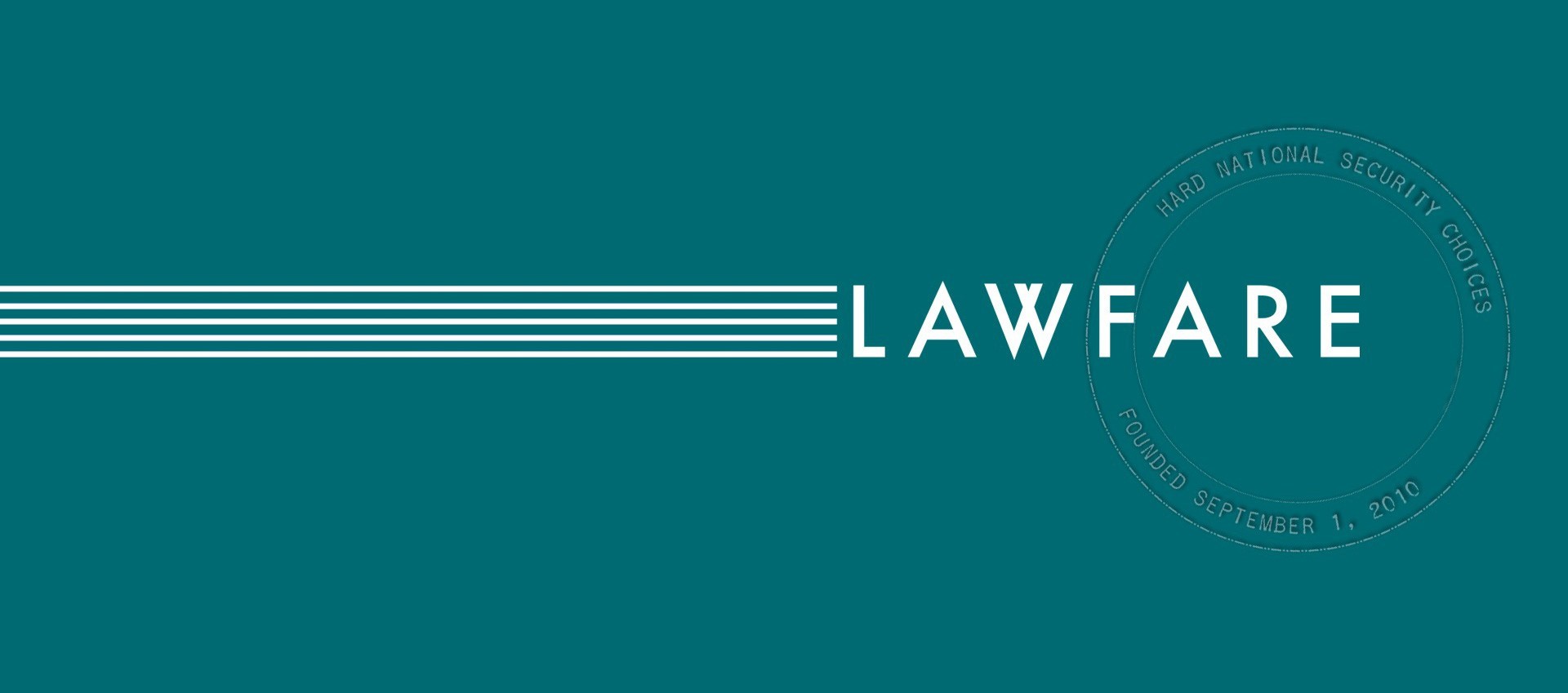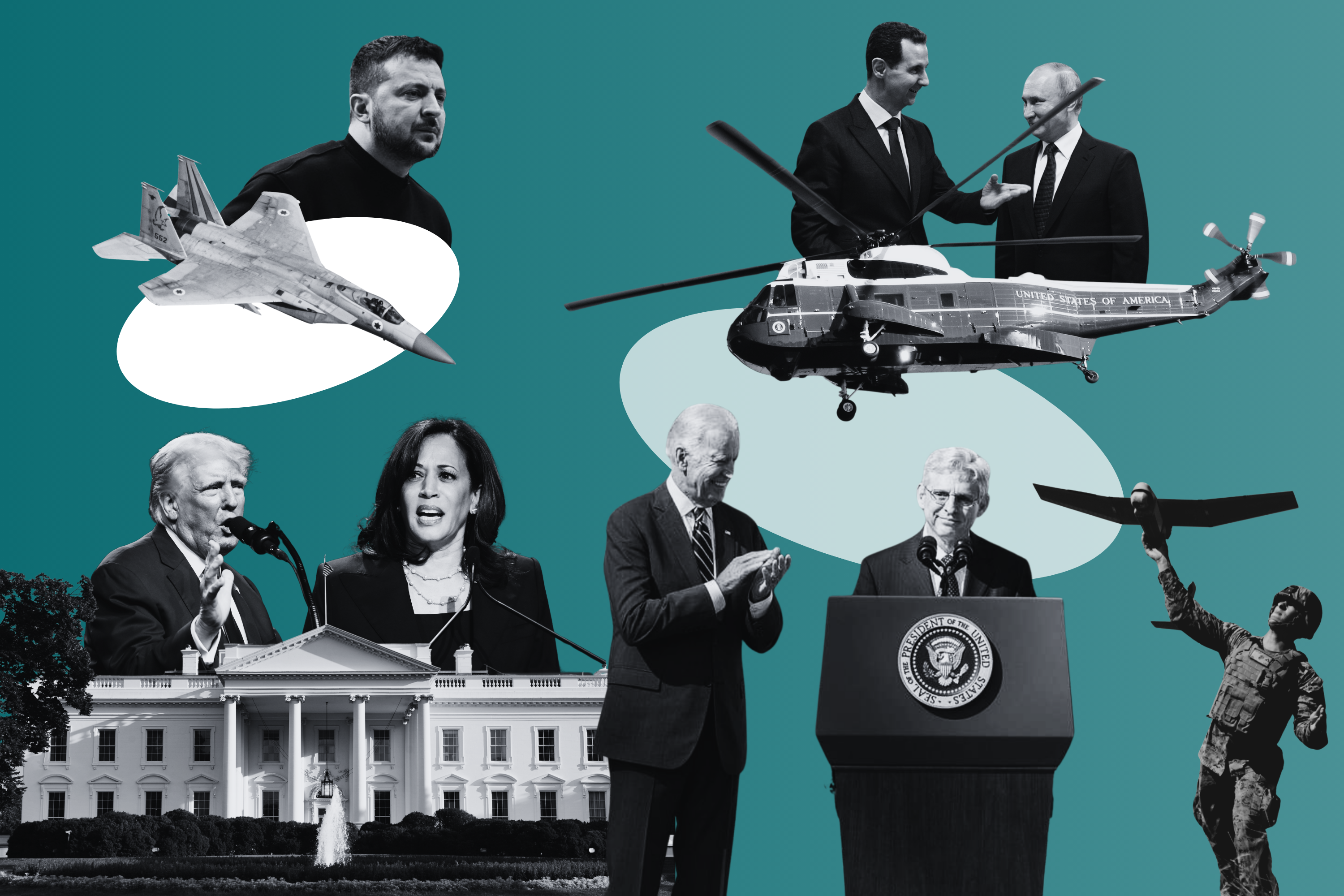Philip B. Heymann: The Art of the Cover Up: Watergate
Lawfare is pleased to announce the publication of a new paper in the Lawfare Research Paper Series: The Art of the Cover Up: Watergate, by Philip B. Heymann, law professor at Harvard Law School and former Deputy Attorney General in the Clinton administration.
From the abstract:
Published by The Lawfare Institute
in Cooperation With

Lawfare is pleased to announce the publication of a new paper in the Lawfare Research Paper Series: The Art of the Cover Up: Watergate, by Philip B. Heymann, law professor at Harvard Law School and former Deputy Attorney General in the Clinton administration.
From the abstract:
A Special Prosecutor is appointed and empowered to find the facts about a crime by a high official. For obvious reasons, the appointment is an invitation to dramatic and public political battle. Even reliable accusations of crimes by a President—and the threat to the rule of law that ignoring them would pose—are fought with all the powers of his Administration. If the accusation is really reliable, the President’s aim is to obscure the truth and to hide the facts. He sees the Special Prosecutor as a danger to his continuing to hold the highest office in the most powerful nation in the world. The President has at his disposal: (1) a significant amount of trust by the citizens who elected him; (2) the intense loyalty of those aides who may have participated in the alleged crimes and may fear prosecution; (3) the capacity to maintain secrecy of records; (4) and the political apparatus to campaign to build distrust of the Special Prosecutor himself.
We have good reasons to entrust the investigation and trial to a Special Prosecutor with special resources rather than to whatever U.S. Attorney is located where the crimes may have taken place. The latter will not have the staffing, the experience, and the trust of even those fearful of the disruption caused by the prosecution of a President or his close aides. Nor may a U.S. Attorney enjoy the same level of support of a court and a grand jury, and a capacity of the same breadth to charge prospective witnesses in any trial against the President with crimes they have committed and to promise benefits in sentencing if they cooperate against the President.
The contest typically takes place at four levels. There is a contest for witnesses—the President relying on the loyalty of those he has hired as well as any hopes they have for benefit from the Administration; the Special Prosecutor relying far more on the fear of prison sentences that could be alleviated only by providing testimony for the Special Prosecutor. The second battle ground is in the fight for the support of the court in obtaining evidence despite Presidential claims of national security or executive privilege. Third, the battle is carried out in public. Each of the two parties is fighting for trust, and the President is struggling to cast suspicion on the Special Prosecutor and his supporters. This is a fight of the President to be seen as victim rather than as perpetrator. The final stage is likely to involve an effort of the President to destroy, and the effort of the Special Prosecutor to preserve, the Special Prosecutor’s public trust, his legal authority, his alliances, and to destroy or disband the very office he has been trusted to run fairly and effectively.
The appointment of Archibald Cox as Watergate Special Prosecutor triggered all four stages of this contest against a once popular President Nixon. Special Prosecutor Mueller is in a contest in the same four stages against President Trump. A close look at how these played out at the time of Watergate may throw some light on how they are likely to turn out in our time of Russian interference in the process of election of a U.S. President.
The paper can be downloaded as a pdf here.





